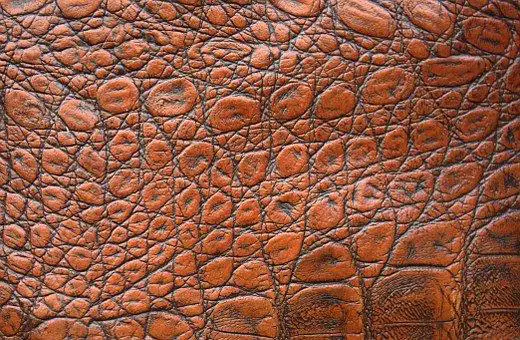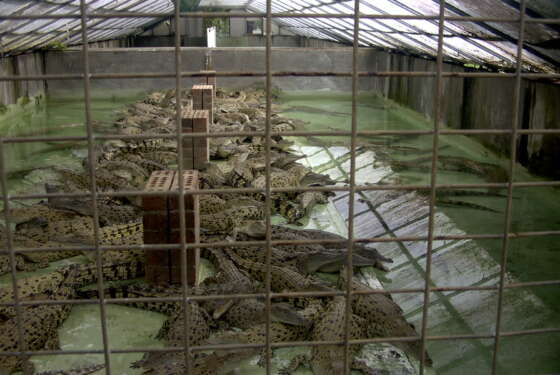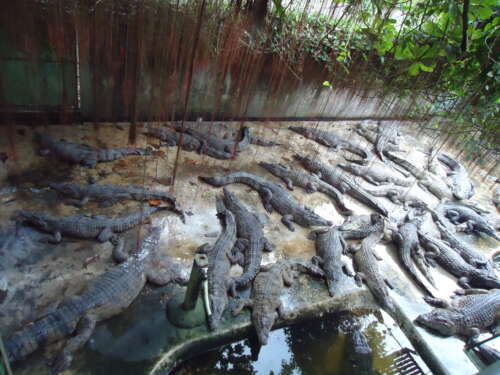SMEs are the major contributor to investments in the agricultural sector in Africa. In most cases, most African enterprises are run as opportunistic arbitrage entities keen on profiting from demand/ supply disparities because of a lack of substantial capital.
Investment into value addition business is limited in this sector due to challenges arising from lack of finance, poor access to markets, and lack of supporting policies. The continent’s main formal economic activity is agriculture, contributing 80% to the region’s employment.

Snapshot of the industry
Crocodile farming is an agricultural niche that holds vast potential for profit-making and value addition for SMEs. The risk of failure in this market segment is relatively low because of farming support systems and a readily available high-demand market.
The sector generates hundreds of millions in exports through the global demand for crocodile skins.
Other uses and income-generating avenues from this farming venture include selling meat and tourism purposes both as heritage or cultural artifacts. The waste meat not suitable for human consumption can feed the other crocodiles as a recycling measure. This ensures waste is minimized and the business realizes the best possible income from the crocodiles.
Opportunities to leverage on
An existing high demand
Southern African countries such as South Africa, Zambia, and Zimbabwe are amongst the major players in the crocodile farming business on the continent. The aforementioned Southern African countries’ gross in exports valued at $73 million, $65 million, and $30 million for the three countries, respectively. Crocodile skins are exported to various parts of the world, with the biggest market in Europe, where the most prominent and luxurious fashion brands are located. The market is readily available with demand exceeding supply which is a plus for producers as it reduces risks on the sale side.
Availability of credit
Funding for crocodile farming is considered an enormous stumbling block in the sector. Agriculture has faced funding challenges because of the high uncertainty in getting positive returns due to climatic changes and biological threats. In Zimbabwe, banks had resorted to only funding viable projects and those backed by collateral security.
Crocodile farming is a lucrative business with huge profits in the long-term and offers a high-demand market. This improves the viability of the project and thus makes it relatively easier to acquire funding from banks.
Highly regulated market
Regulation is one critical aspect of any sector’s overall success—an unregulated market results in some unfair practices in relation to trade and competition. Market manipulation by the dominant players in the industry is also probable. Although a small and uncommon agricultural niche, crocodile farming is a highly regulated market with well-defined standards. The sector is regulated by the Convention on International Trade in Endangered Species of Wild Fauna and Flora (CITES).
Over the past years, the sale of illegally acquired crocodile skins was common. This created a market of cheap skins as well as the threat of extinction to the world’s various crocodile species. Setting up a solid regulatory framework and quality standards ensures efficiency and deters illegal trade as a market for opportunistic profits. The regulation also provides an orderly and fair marketplace, one such that even SMEs have an equal chance to thrive and be successful.
Multiple income streams
The crocodile farming business is one with multiple sources of income. Given the risks involved in any business that comes with changing market trends, lifestyles, and income, it is the farmer’s advantage to have alternatives. The primary source of income from this business comes from the sale of the skins for leather. The process, however, for a crocodile to be fully grown and develop a skin of the required quality and standard is a lengthy one.
A farmer can benefit from using crocodiles for tourism, like viewing activities. This generates regular income, though not that substantial, is enough to strengthen and meet day-to-day cash requirements for the business. In terms of assessing the skins’ quality, fashion houses send graders demanding high-grade crocodile skins.
Challenges that must be embraced
High costs of capital and operating costs
With great return come significant risks. The massive revenues that are probable require some huge capital outlay commitments, which accrue the high cost of capital. This is a significant barrier to entry in the sector. As an industry in which SMEs can venture into, forming co-operatives, partnerships, or even collaborating with the existing large and experienced farmers, will be vital to their success.
The sector’s goal is to meet the high and increasing demand, and as such, small players can go a long way in fulfilling this objective. Daily operating costs are no exception as quality standards have to be met daily, with specialized diets and living conditions prime to ensure the best and quality skins are produced.
Long payback period
For any start-up business, the top priority concern is the time it takes to repay the initial capital invested. This is when profits start to be relevant as they are now sufficient to cover investment costs. It takes approximately 7-8 years to start enjoying profits in this business. In an environment where all demand factors, consumer preferences, and lifestyles remain the same, it will not be a repelling factor to commit funds for such a long time before breaking even. On the contrary, market conditions do not remain the same. The volatility of prices on the global export markets brings in an element of risk given the long payback.

The crocodile farming sector offers opportunities for SME’s
The export potential of the sector is enormous, and SMEs should partake in it to ensure they utilize the gains the industry has to offer. Increasing participation by SMEs will go a long way in creating employment and improve the standard of living for many. A collaborative approach is required from all economic sectors across the continent to exploit this untapped lucrative farming niche.
Read also: Beyond the pandemic: How do we feed our cities and industries- An agricultural insight











